Turkish village keeps ancient Roman bathhouse tradition alive
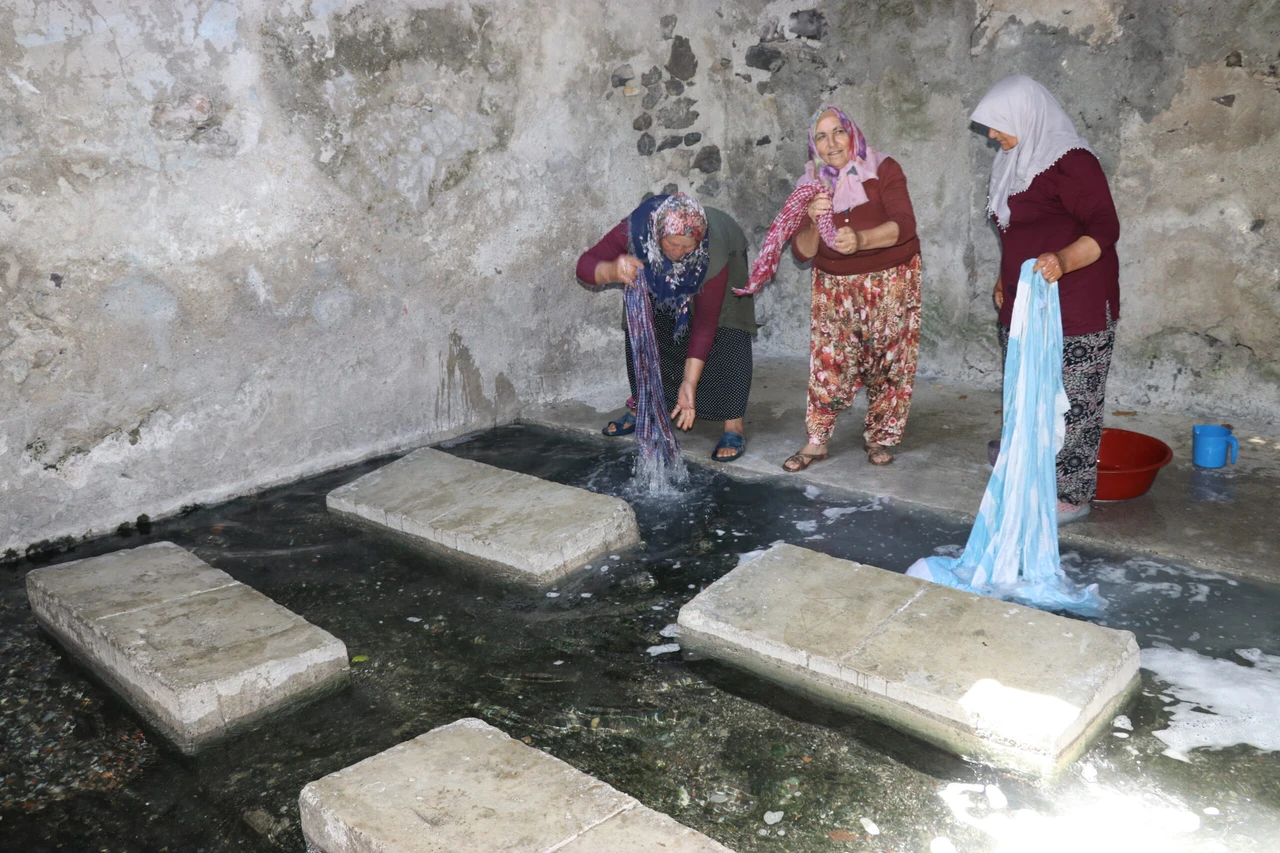 In the village of Ilisu, located in the Goynucek district of Amasya, Türkiye, women continue the tradition of washing laundry every Sunday in an ancient Roman bath built over a thermal spring, October 2, 2024 (AA Photo)
In the village of Ilisu, located in the Goynucek district of Amasya, Türkiye, women continue the tradition of washing laundry every Sunday in an ancient Roman bath built over a thermal spring, October 2, 2024 (AA Photo)
Women from the village of Ilisu in Amasya, Türkiye, maintain a centuries-old tradition of washing clothes in a 28°C thermal spring bath built during the Roman era.
In the village of Ilisu, located in Türkiye’s Amasya province, women gather every Sunday to wash their laundry in a unique setting – a Roman-era bathhouse fed by a thermal spring. The constant 28°C temperature of the water has made it a perfect spot for laundry, a tradition passed down through generations.
The villagers, particularly older women, see it as a way to honor the customs of their grandmothers and mothers, who also washed their clothes in this historical bath. Every week, they keep this practice alive, preserving both a cultural heritage and a piece of Roman history.
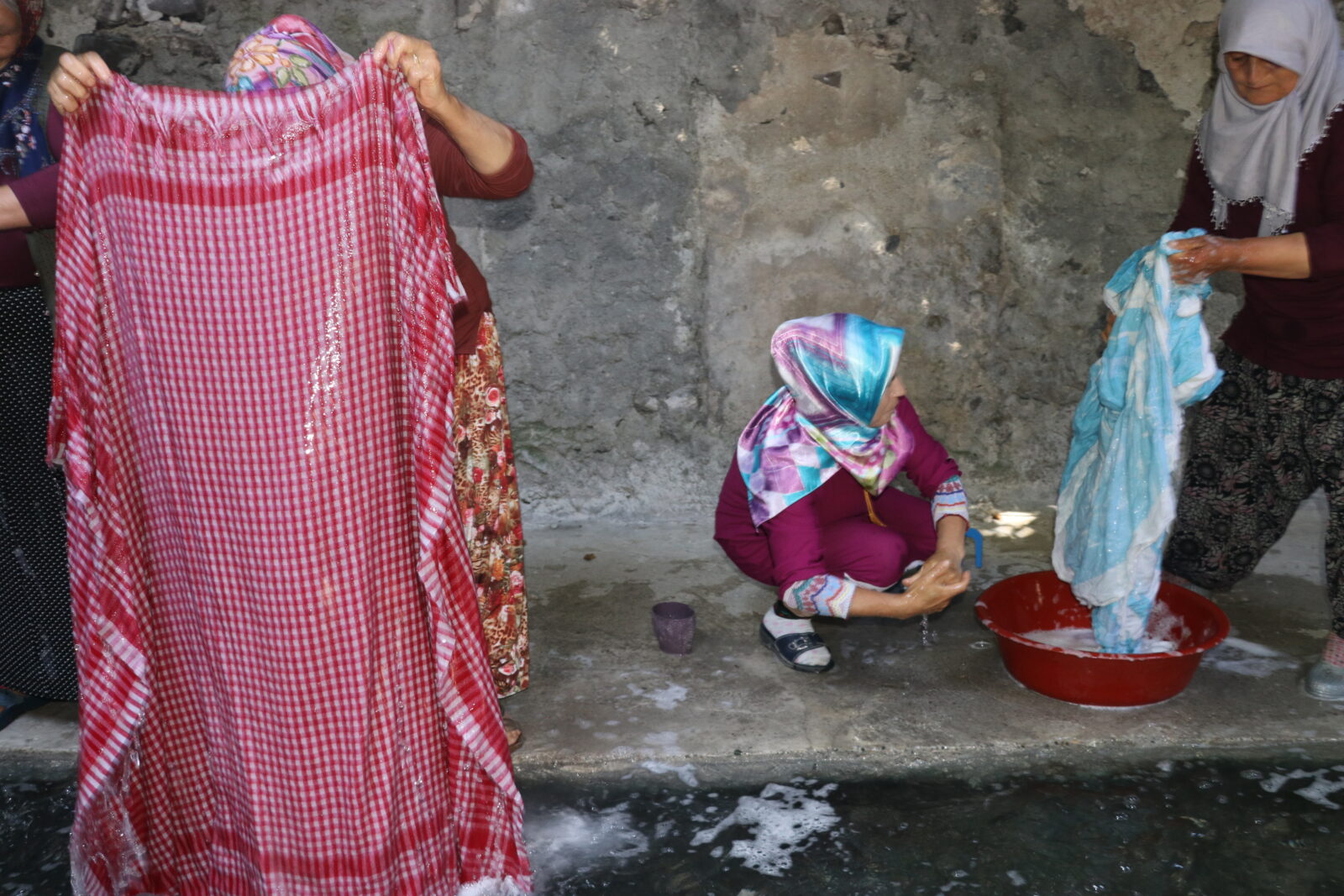
Glimpse into history
Speaking to Anadolu Agency, Mustafa Kartal, the district governor of Goynucek, provided insight into the village’s rich history.
“Ilisu was inhabited as early as the third century A.D. by the Romans. They built baths and pools around this healing water source in the heart of the village,” he explained.
Kartal also highlighted the ongoing efforts to further develop the site for tourism. “We’re working on various projects to make the most of this valuable natural resource. One of our main goals is to use the thermal water in greenhouses to grow agricultural products. In the past, this bath was traditionally used by newlyweds as a bridal and groom bath. Today, villagers use it as a laundry space, and sometimes as a playground for children. Our goal is to restore and promote it as a tourist attraction.”
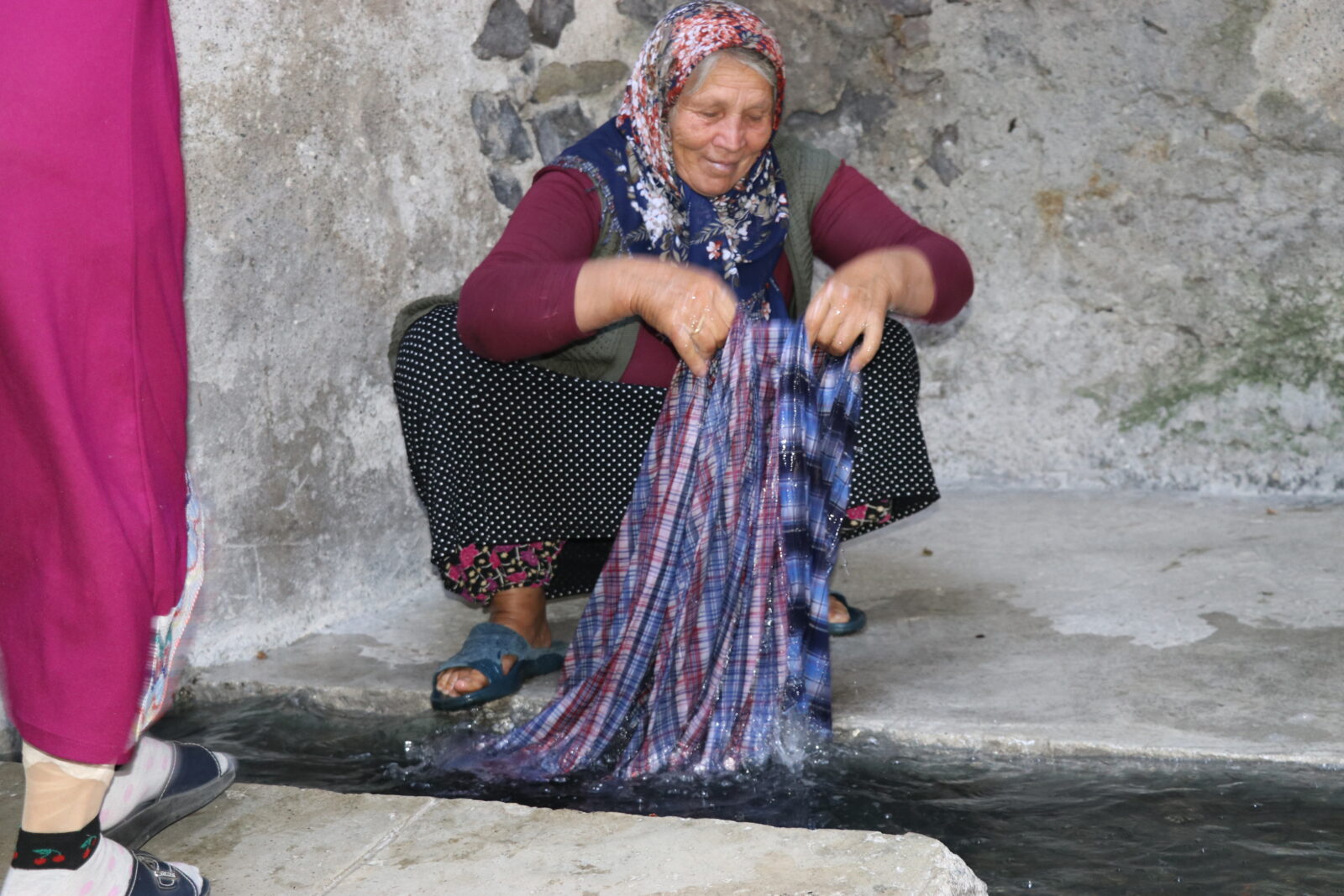
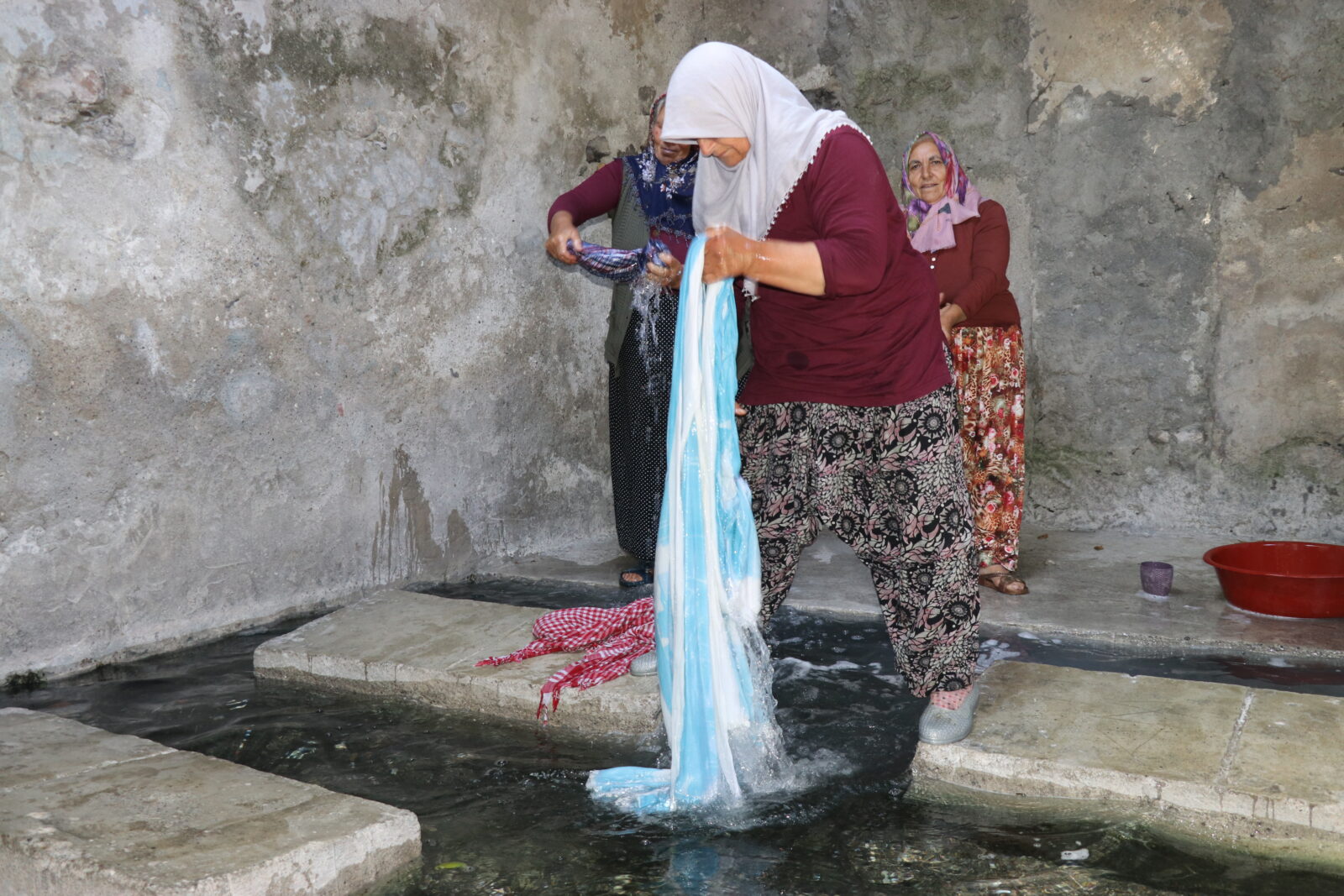
Roman bathhouse treasure for future generations
Goynucek Mayor Kemal Sahin, a native of Ilisu, emphasized the importance of preserving the village’s traditions. “As Ilisu locals, we take great pride in our heritage. We are working closely with the district administration to explore new ways to utilize this natural resource more effectively.”
The villagers remain deeply connected to the historic spring and its traditions. For many, like 75-year-old resident Sakine Coban, this bathhouse is more than just a place to wash clothes. “My mother and grandmother used to wash laundry here, and now I do the same,” she said. “The water is always the same perfect temperature. As long as I live, I will continue this tradition.”
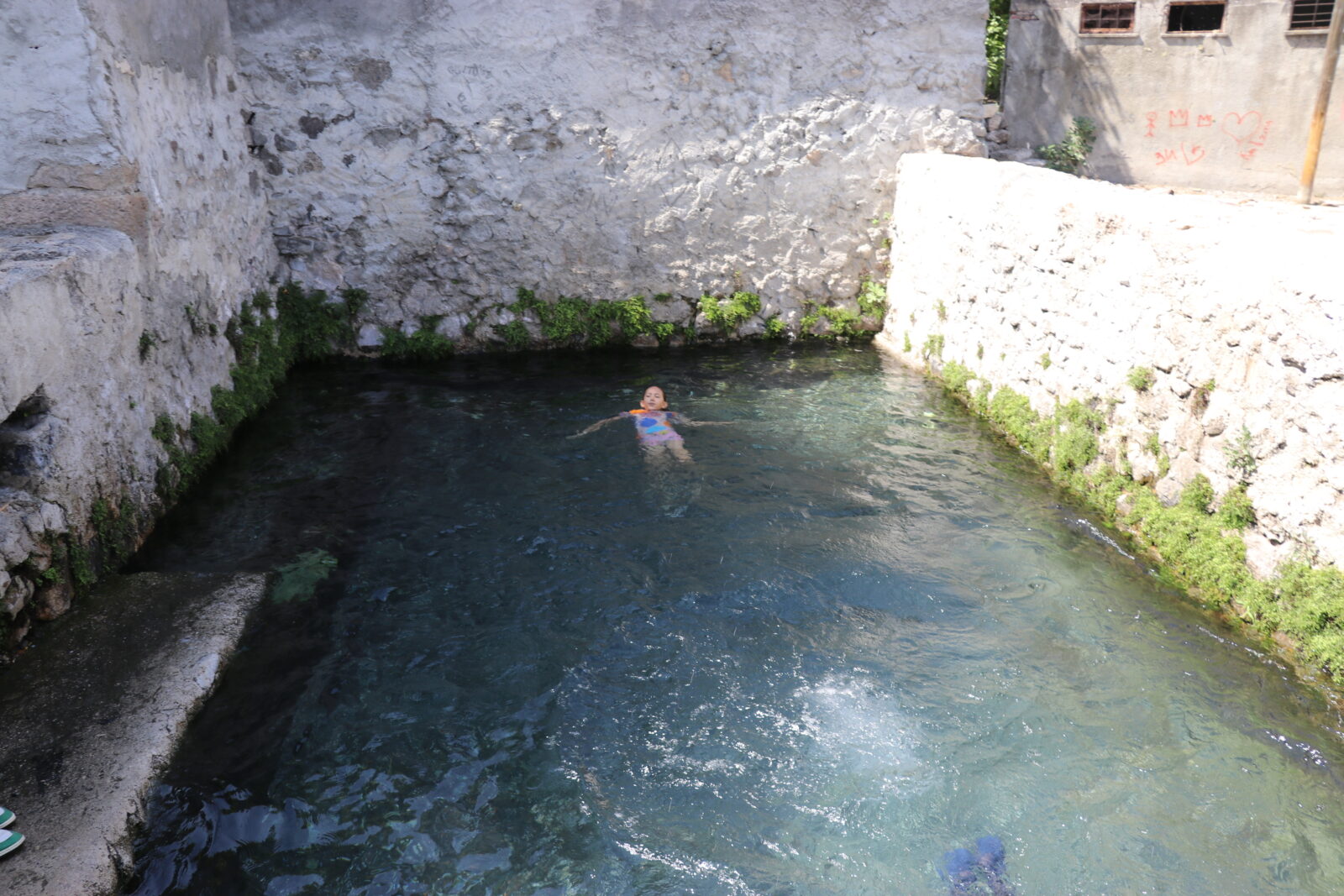
Plans to boost tourism
Authorities are actively working to enhance the area’s tourism potential, recognizing the Roman bathhouse as an important cultural and historical site. The rich legacy of the Roman baths, known for their architectural and societal importance, continues to attract attention, and efforts to incorporate the spring water into modern agricultural practices are also underway.
With tourism and sustainability in focus, Ilisu village may soon become a key destination for visitors seeking both historical and natural wonders.



